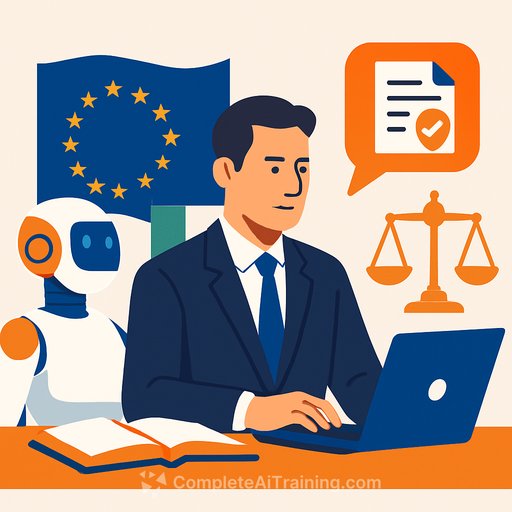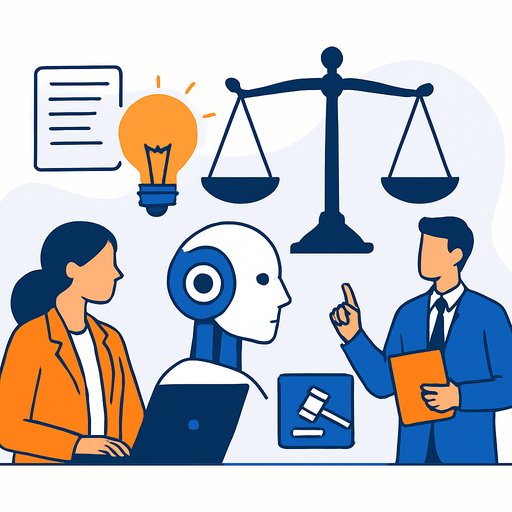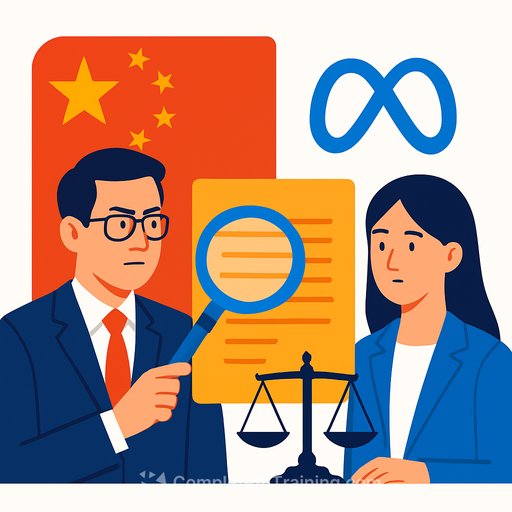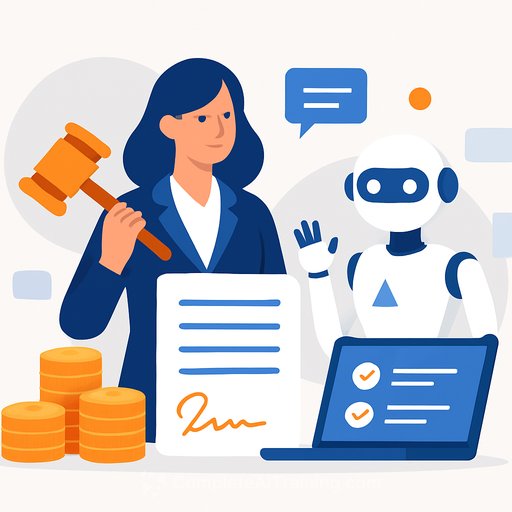The Complete Guide to Using AI as a Legal Professional in Italy in 2025
By 2025, AI is no longer a hypothetical tool for Italian legal professionals. With 63% of large companies already adopting or planning AI, and a potential €115 billion productivity boost on the horizon, the legal landscape is shifting. The EU AI Act, effective since August 2024, sets the main framework, with prohibitions and literacy duties active from February 2025. Italy adds its own layers through national legislation and strategies, making AI compliance a practical priority for legal teams.
Key Metrics
- 63% of large companies adopting or planning AI
- Potential €115 billion productivity increase for Italian firms
- AI market projected to reach €1.8 billion by 2027
- National AI investment fund: €1 billion
“We are convinced that there can and must be an Italian way to artificial intelligence.”
1. Is AI Allowed in Italy? Legal Permissibility and Limits
AI use is permitted but regulated in Italy. The EU AI Act, effective from August 2024, bans certain high-risk applications and imposes transparency and literacy duties starting February 2025. Italy’s Senate-approved AI Bill introduces sector-specific safeguards for health, employment, public administration, and intellectual professions. It also includes local hosting requirements for some public-sector AI systems and new rules on copyright and deep-fake labeling.
Existing laws like GDPR, the Italian Data Privacy Code, and competition rules also apply. The Italian Data Protection Authority (DPA) has actively enforced these, demonstrated by its 2023 actions on ChatGPT and web scraping. Legal teams must treat AI as allowed but conditional: risk mapping, human oversight documentation, and data hosting compliance are essential.
Important Dates
- EU AI Act in force: 1 August 2024
- Prohibitions and literacy duties start: 2 February 2025
- Italian Senate first reading AI Bill: 20 March 2025
- Italian DPA notices on web scraping and ChatGPT interventions: 2023–2024
2. What Is the AI Regulation in 2025? EU and Italian Rules Affecting Legal Work
The EU AI Act’s provisions unfold in stages. Prohibitions and AI literacy duties began in February 2025. Obligations for general-purpose AI (GPAI) providers, including transparency, training data summaries, and incident reporting, started August 2025. Most high-risk AI requirements apply from 2026–2027.
Italy complements this with its AI Bill, adding sector safeguards and requiring some public-sector AI to be hosted domestically. Legal teams must identify whether systems are GPAI or high-risk, document oversight and data flows, and track national implementing decrees carefully. These regulatory milestones are compliance deadlines, not guidance.
Key Dates
- AI Act enters into force: 1 August 2024
- Prohibitions and AI literacy duties effective: 2 February 2025
- Italian Senate AI Bill approval (first reading): 20 March 2025
- GPAI obligations and governance start: 2 August 2025
- High-risk AI obligations begin: 2 August 2026
- Final high-risk compliance deadline: 2 August 2027
3. Italy AI Strategy 2024–2026: National Priorities and Investments
Italy’s AI Strategy sets clear priorities across research, public administration, enterprise, and training. It funds national datasets, competence centres, and an AI Foundation to coordinate projects, promote interoperable procurement, and develop Italian large language models tailored to local needs.
Legal professionals should expect changes in procurement rules, data-sharing policies, and upskilling programmes. A €1 billion public investment fund (potentially matched by private capital) supports startups and interoperable solutions. Advising clients on IP, public tenders, and data governance will grow in importance.
- Four strategic pillars: Research, Public Administration, Enterprise, Training
- €1 billion public investment fund
- Infrastructure: national dataset repository, competence centres, AI Foundation
- Support for Italian LLMs like Vitruvian-1, Minerva, Modello Italia
- Implications for procurement, sandboxes, and training
4. Practical Compliance Checklist for Italian Law Firms and Legal Teams
- Inventory & Risk Classification: Map all AI models, datasets and data flows. Assign risk levels per the AI Act (minimal, limited, high-risk, GPAI).
- Impact Assessments: Conduct Data Protection Impact Assessments (DPIA) for personal data use and Fundamental Rights Impact Assessments (FRIA) for high-risk AI.
- Risk Management & Documentation: Maintain technical files, logs, and conformity evidence throughout AI lifecycle.
- Human Oversight & Training: Assign oversight roles and ensure staff complete AI literacy training.
- Vendor Due Diligence: Verify suppliers, hosting locations, contracts, and appoint EU representatives if necessary.
- Post-market Monitoring & Incident Reporting: Establish procedures for ongoing monitoring and timely reporting of incidents.
- Regulatory Timetable: Prioritize compliance actions for 2025–2027 deadlines and track national implementing measures.
Failing to meet these requirements risks enforcement actions and fines. Legal teams should create templates and evidence bundles now to demonstrate compliance readiness.
5. Employment & HR: Using AI for Hiring and Monitoring in Italy
AI tools in recruitment or workplace monitoring are subject to strict rules. Italy’s Transparency Decree requires written notice to employees and unions explaining automated decision-making or monitoring systems. The Ministry of Labour’s guidance clarifies this applies even when human intervention is minimal.
GDPR and Article 22 require risk assessments and DPIAs for profiling or fully automated decisions. Employers must conduct bias and validity audits, retain human review of hiring outcomes, secure union notification or labour-office authorizations before deploying monitoring, and keep audit logs.
Without these steps, employers face administrative fines (€250–1,500 per worker) and potential criminal liability. Documenting notices, oversight, and audits is essential.
6. IP, Copyright, and Content Identification for AI Use in Italy
Italian copyright law protects works with a demonstrable human creative contribution. AI-generated content is not automatically protected; authorship depends on the user's relevant input, edits, and contractual arrangements with AI vendors.
The proposed Italian AI law would clarify protection for AI-assisted works where human creativity is evident. It also introduces rules on text-and-data mining and labeling of AI-generated deep fakes.
Legal advice should focus on preserving prompt logs, training-data provenance, and updating IP clauses to secure rights in AI collaborations.
“Creativity cannot be excluded solely because the work consists of simple ideas and notions that fall within the intellectual heritage of individuals experienced in the field; furthermore, creativity is not constituted by the idea itself, but by the form of its expression - its subjectivity…”
7. Civil Liability, Governance, Antitrust, and FDI Considerations in Italy
Article 2050 of the Civil Code imposes a de facto strict liability on operators of “dangerous” activities, including AI deployment. Businesses must prove all appropriate precautions to avoid liability for harm caused by AI systems.
Boards must integrate AI risk into compliance and governance, ensuring technical oversight. Antitrust authorities monitor market concentration, exclusive algorithms, and vertical integration, with powers to access training data and source code.
Foreign direct investment (FDI) rules under Italy’s Golden Power regime require notification for AI and critical tech deals, allowing government conditions or vetoes. Legal teams should embed liability mapping, antitrust reviews, and FDI checks into AI procurement and vendor strategies.
8. How Much Do AI Specialists Make in Italy? Careers, Roles, and Salary Expectations
Adding AI expertise typically accelerates progression within existing legal pay bands rather than creating a separate salary scale. The national average salary for Legal Counsel is around €69,240, with In-House Counsel in Milan averaging €71,280.
Entry-level lawyers earn about €40,420, while senior in-house roles can exceed €100,000 annually. Upskilling in AI literacy, vendor diligence, and IP rights can move mid-career professionals into the top quartile.
- Average Legal Counsel (Italy): €69,240
- Average In-House Counsel (Milan): €71,280
- Entry level (0–2 years): €40,420
- Senior In-House Counsel (20+ years, Milan): €107,860+
9. Conclusion & Next Steps for Legal Professionals in Italy
Legal teams should treat the EU AI Act as operational law, with critical GPAI and high-risk duties starting August 2025. Begin by mapping every AI system, conducting DPIAs and FRIAs where needed, formalizing human oversight, and tightening vendor due diligence.
Record hosting locations and data flows, considering Italy’s local hosting rules. Treat upcoming compliance dates as deadlines. Align governance, incident reporting, and board education accordingly.
Finally, close skill gaps through targeted training in AI literacy, prompt hygiene, and vendor risk management. This preparation will reduce regulatory risks and position legal professionals as trusted advisors in AI integration.
10. Frequently Asked Questions
Is AI allowed in Italy and what limits apply to legal professionals?
Yes. AI use is permitted but subject to the EU AI Act and emerging national rules that add sector safeguards and local hosting requirements. Legal professionals must ensure risk controls and transparency obligations are met.
What are the key regulatory dates and obligations in 2025 affecting legal work in Italy?
Key dates include the AI Act entering into force on 1 August 2024, prohibitions and literacy duties effective 2 February 2025, and GPAI obligations starting 2 August 2025. High-risk AI rules follow in 2026–2027.
What practical compliance checklist should Italian law firms follow now?
Start with a full inventory and risk classification of AI tools. Conduct DPIAs and FRIAs as required. Maintain technical documentation and logs, train staff on AI literacy, and strengthen vendor due diligence and incident reporting.
How do AI rules affect hiring/monitoring and IP protection in Italy?
Automated hiring and monitoring require employee and union notification, with risk assessments under GDPR. IP protection centers on human creativity; AI-generated works need demonstrable human contribution for copyright protection.
What commercial, liability, and career implications should legal professionals expect in Italy in 2025?
Legal teams face strict liability risks under Article 2050 and must manage antitrust and foreign investment rules. AI adoption offers significant productivity gains. AI expertise boosts legal career prospects within established salary bands.
For those aiming to build AI skills relevant to legal practice, exploring practical AI courses for professionals can be a decisive step.
Your membership also unlocks:






